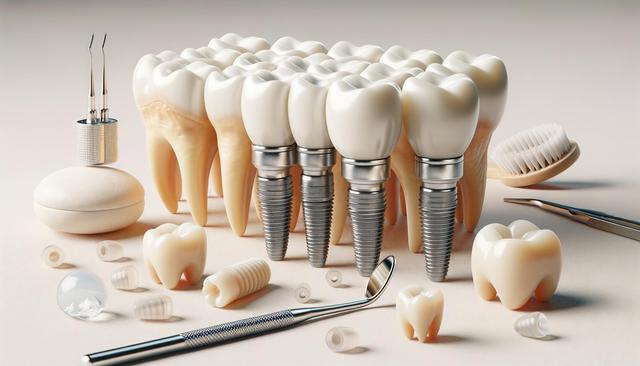Understanding the Role of Dental Implants in Senior Oral Health
Dental implants are a reliable solution for replacing missing teeth, and they have become an increasingly popular choice among seniors. Age-related factors, such as bone density loss, gum disease, or long-term wear from dentures, often lead to the need for more permanent dental solutions. A dental implant for elderly patients can restore function and appearance in a way that feels natural and long-lasting. Unlike traditional dentures, implants are anchored into the jawbone, providing a solid and stable base for eating and speaking with confidence.
Senior patients considering implants often wonder if age is a limiting factor. Fortunately, dental implants are suitable for many older adults, particularly those in good general health. Key considerations include bone health, the condition of existing teeth, and any chronic conditions that might affect healing. Many dental professionals perform evaluations to determine eligibility, and advancements in technology now make it easier for more seniors to benefit from implants.
Types of Dental Implants Available for Seniors
There are several implant options available, depending on individual needs and the extent of tooth loss. One of the more comprehensive solutions is full mouth dental implants for pensioners, which can replace all teeth in the upper or lower jaw. This is particularly beneficial for those who have struggled with traditional dentures or have experienced extensive tooth loss.
Common types of implants for seniors include:
- Single-tooth implants – Ideal for isolated tooth loss.
- Implant-supported bridges – Used when multiple adjacent teeth are missing.
- Full arch or full mouth implants – Comprehensive replacement for complete tooth loss.
Each type has its own advantages, and the right choice will depend on oral health status, budget, and personal preferences. Dental professionals typically work closely with patients to customize treatment plans that suit their lifestyle and health conditions.
Affordability and Access to Low-Cost Dental Implants
Cost is a major concern for many seniors considering this form of dental care. Fortunately, there are options for low-cost dental implants for retirees that make the procedure more accessible. While implants are generally more expensive than dentures, their durability and minimal maintenance needs often make them a worthwhile investment over time.
Ways to make implants more affordable include:
- Dental discount plans or senior-specific insurance coverage
- Clinics offering payment plans or financing options
- University dental programs where procedures are performed under supervision at reduced costs
Some non-profit organizations and community health initiatives also provide support for seniors in need of restorative dental care. Exploring all available resources and discussing costs transparently with providers can lead to more manageable financial planning for implant procedures.
Benefits of Dental Implants for the Elderly
A dental implant for elderly individuals offers numerous physical and psychological benefits. Beyond improving chewing ability, implants contribute to clearer speech, facial structure maintenance, and increased confidence in social settings. Unlike dentures, which may slip or require adhesives, implants provide a secure fit that feels more like natural teeth.
Additional benefits include:
- Improved nutrition through better chewing efficiency
- Reduction in bone loss that often accompanies missing teeth
- Ease of maintenance with regular brushing and flossing
- Long-term solution with proper care, often lasting decades
For seniors who value independence and quality of life, dental implants can be a transformative solution. They allow individuals to eat their favorite foods, speak without worry, and smile with confidence—important aspects of emotional well-being at any age.
Preparing for the Procedure: What Seniors Should Expect
Before moving forward with implants, seniors should understand the treatment process. It typically begins with a comprehensive evaluation, including X-rays or digital scans, to assess bone quality and identify the best type of implant. The procedure itself involves placing a titanium post into the jawbone, followed by a healing period before attaching the crown or denture support.
Steps in the dental implant process may include:
- Initial consultation and oral health assessment
- Bone grafting if necessary to support the implant
- Implant placement surgery
- Healing period (usually several months)
- Final crown or denture attachment
Recovery times and outcomes vary, but many seniors report minimal discomfort and a relatively quick return to normal activities. Following post-procedure care instructions is crucial to ensure successful integration and long-term functionality of the implants.
Conclusion: Is It the Right Time for Dental Implants?
For seniors seeking a more permanent and comfortable solution to missing teeth, dental implants offer a reliable option that supports both health and lifestyle. Whether considering full mouth dental implants for pensioners or exploring low-cost dental implants for retirees, the key is to consult with a qualified provider and evaluate all available options. With proper planning and care, a dental implant for elderly individuals can significantly enhance quality of life, making it a valuable consideration for those looking to invest in lasting oral health.




Leave a Reply